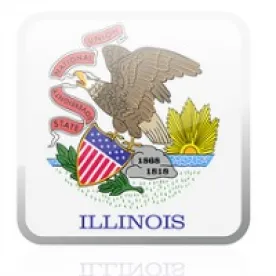Pointing to the NLRB’s 15-month delay in filing its petition as undermining its claim of irreparable injury, a federal district court in Illinois has denied the National Labor Relations Board’s application for injunctive relief against an employer under Section 10(j) of the National Labor Relations Act. Ohr v. Arlington Metals Corporation, 2015 U.S. Dist. LEXIS 160492 (N.D. Ill. Dec. 1, 2015). Section 10(j) of the Act permits the NLRB to seek a federal court injunction forbidding unions and employers from committing unfair labor practices during the pendency of related unfair labor practice litigation before the agency.
The employer and the union began negotiations for their first collective bargaining agreement in 2007. However, despite many meetings, they were unable to come to an agreement. In July 2014, after settling several unfair labor practice allegations, and receiving a petition signed by 16 of the 24 unit employees indicating they did not want to be represented by the union, the employer withdrew recognition from the union. In response to this and other conduct the union alleged to be unlawful, the union filed an unfair labor practice charge against the employer. It alleged the employer impermissibly refused to bargain in good faith and improperly withdrew recognition.
Following investigation, the NLRB issued an unfair labor practice complaint against the employer containing allegations of unlawful conduct. After a hearing, an NLRB ALJ concluded the employer had committed violations of the Act and ordered the employer to resume recognition of the union and to bargain in good faith. The employer filed exceptions at the NLRB in Washington, D.C., challenging the ALJ’s decision.
The Board often takes many months to rule on exceptions and the employer is not required to comply with the ALJ’s decision in the interim. For that reason, from time-to-time, in cases it considers egregious and requiring an immediate remedy, the NLRB files a petition for injunctive relief. In October 2015, the NLRB filed such a petition in Arlington Metals seeking a court order enforcing the ALJ’s order pending completion of the NLRB’s adjudicatory process.
Under Section 10(j), interim injunctive relief is “just and proper” only if the petitioner can show: (1) NLRB has no adequate remedy at law; (2) the Union will be irreparably harmed without interim relief, and that potential harm to the Union outweighs potential harm to the employer; (3) public harm would occur without the relief; and (4) the Board has a reasonable likelihood of prevailing.
The court denied the NLRB’s petition for interim injunctive relief. The judge focused on the NLRB’s lengthy delay before petitioning the court — waiting more than 15 months after the alleged unfair labor practices occurred. The court pointed out that the employer allegedly committed its last unfair labor practice in July 2014, when it withdrew recognition from the union, and the Board’s office where the charge had been filed and investigated had discussed with the employer the potential for injunctive relief on two occasions — in August 2014 and in July 2015 — yet the Board did not file its petition until October 2015. Such a lengthy delay supports the conclusion that the unit employees’ alleged injuries were neither urgent nor irreparable.
The Board’s petition for interim relief here underscores that it is not shy about seeking an injunction, even where it has acted inconsistently with the urgency needed to achieve this extraordinary remedy. Therefore, employers against whom unfair labor practice charges have been filed and who have been notified by the Board that Section 10(j) proceedings may be sought should recognize they are not necessarily “out of the woods” for Section 10(j) court proceedings merely because of the passage of a substantial period of time.






 />i
/>i

